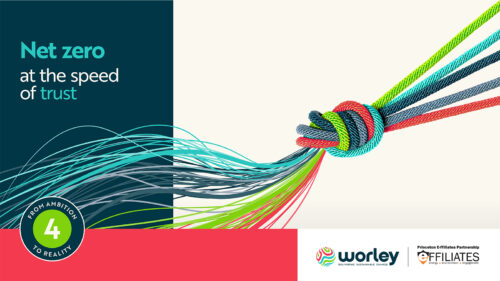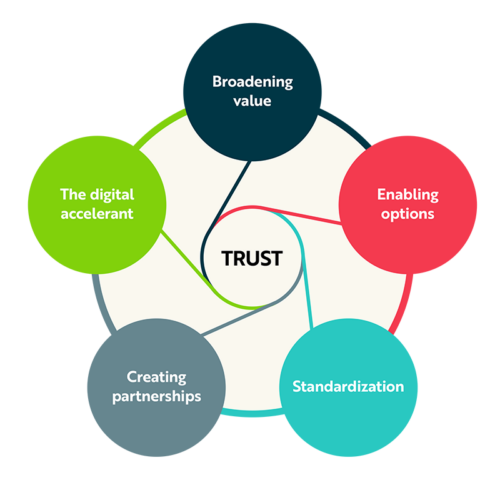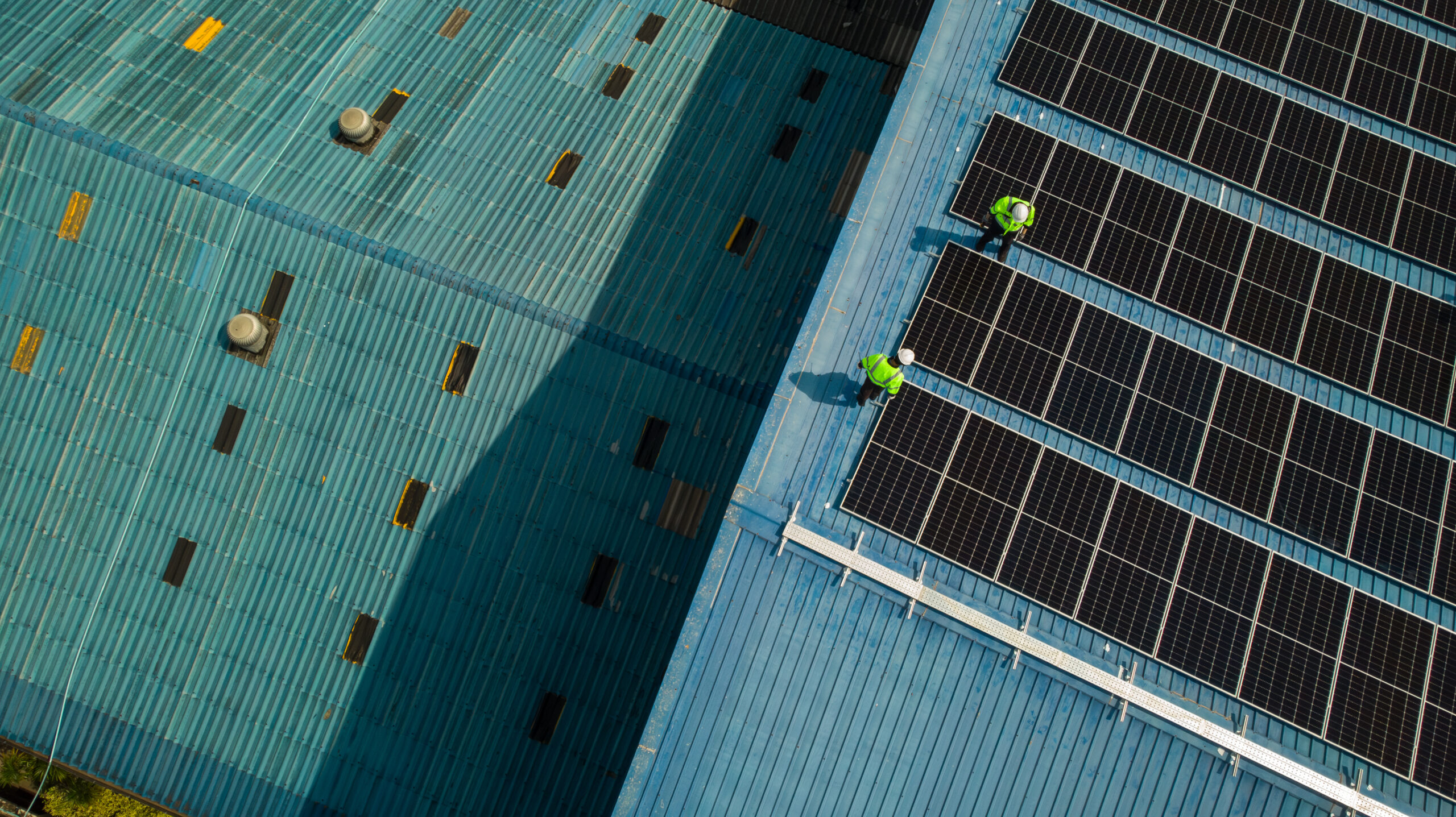Locating trust on the road to a net-zero future
A lack of trust among stakeholders could limit the speed of the energy transition, according to a new report authored by Andlinger Center researchers in collaboration with E-ffiliates member Worley, a global professional services company of energy, chemicals, and resources experts.

The report, titled “Net Zero at the Speed of Trust,” is the fourth installment in From Ambition to Reality, a collaborative thought leadership series between Princeton University’s Andlinger Center and Worley that outlines the necessary paradigm shifts in infrastructure delivery practices for bridging the gap between current progress and what is needed to achieve ambitious net-zero targets. While earlier installments developed a framework for measuring progress made on each of the five paradigm shifts identified in the first paper, the latest article identifies the role of trust in facilitating the widespread and durable adoption of the shifts across the energy ecosystem.
“When we explain the five shifts to energy transition stakeholders, they acknowledge their importance in building our capacity to deploy infrastructure at the speed and scale needed to reach net-zero goals,” said co-lead author Chris Greig, the Theodora D. ’78 & William H. Walton III ’74 Senior Research Scientist at the Andlinger Center for Energy and the Environment. “But when we asked stakeholders why they think adoption of these shifts has been so limited, they identified a lack of trust between project actors as a significant roadblock to progress.”

Trust can be hard to build and easy to erode in the energy sector, said Greig. Every energy project requires many stakeholders to come together, often each with different interests, values, and baseline levels of trust. While some actors, such as a developer and their supplier, might have a pre-existing positive relationship, others will have to build a relationship from scratch. There are even stakeholder relationships, such as the one between members of certain local communities and private developers, that begin with a burden of deep distrust.
Each of these situations — whether the task is maintaining and growing trust, building trust from scratch, or restoring trust after a history of distrust — requires different, context-specific approaches, yet all of them are needed to meet long-term climate goals while ensuring equitable outcomes.
“Trust isn’t everything on a project, of course — competency, experience and diligence, for example, are also needed to deploy successfully,” said co-lead Dr Paul Ebert, the Group Director for Sustainability & Energy Transition leadership for Worley. “But if you want speed in delivery while maintaining high performance across delivery metrics like schedule, cost and safety — all of which the net-zero task demands — then trust elevates in importance.”
A carbon capture and storage case study
In the report, the researchers pointed to a pulse survey they conducted about the carbon capture and storage (CCS) industry in the United States as an example of how trust — or lack thereof — can influence the overall speed of energy infrastructure deployment.
In the case of CCS, the researchers argued that repeated setbacks such as canceled projects, cost overruns, and project delays have damaged the perceived credibility of the technology. At the same time, CCS technologies are still unfamiliar to most of the general population — only 28% of surveyed respondents said they had heard of CCS. The authors concluded that the failures of previous CCS projects and the perceived unfamiliarity with the technology make it difficult to achieve buy-in from the institutions and communities that will ultimately shape the technology’s role in the broader energy transition.
“Our survey results show that low public knowledge about CCS is associated with perceptions of greater risks with the technology. We also found that there is low trust in the institutions responsible for managing CCS,” said contributor Jordana Composto, a graduate student in psychology and social policy. “I think it’s an important piece of grounding information to understand that CCS is often starting from a lower baseline of trust.”
A framework for durable trust
The current report concentrates on identifying and locating the role of trust in the context of the clean energy transition, but the researchers are conducting follow-up work to understand the factors that underpin individuals’ perceptions of trust. Partnering with David Miller, director of Princeton’s Faith & Work Initiative, and Elke Weber, the Gerhard R. Andlinger Professor of Energy and the Environment and professor of psychology and public affairs, the researchers aim to develop the notion of an Infrastructure for Trust, or a framework for systematically establishing and maintaining deep trust between energy transition stakeholders. The project started in the second half of 2024 and will run through 2025, supported financially by Worley.
“Many of the changes we hope to see are systemic shifts that will likely take years to come to fruition,” Composto said. “To achieve those, we need to be building durable trust, or trust that is resilient to normal project mishaps, so that we can experience these setbacks without endangering long-term plans.”
In their initial work, the researchers said that four dimensions have emerged as important pillars for establishing durable trust. Those dimensions include early, authentic, and ongoing engagement among all project stakeholders; comprehensive information sharing between project stakeholders; participatory decision-making processes and the ability for stakeholders to share both the benefits and risks of a project; and a recognition of the unique cultural, historical, political, and legal nuances that underlie each trust-building process.
“A key aspect of trust is a willingness to be vulnerable, and ultimately, that needed vulnerability will not happen until people believe that someone is acting sincerely and in their best interest,” said Greig. “Getting to that point will require a level of engagement and transparency that is unprecedented for the energy sector, but without it, we think the sector will struggle to maintain the level of trust we believe the world needs to achieve its climate targets.”
Access the executive summary and full report of “Net Zero at the Speed of Trust,” published September 4, 2024. Greig and Ebert were lead authors on the report. In addition to Composto, technical contributors to the report include Gary LeMaire, Elena Miceski, and Maryam MKhani of Worley.
